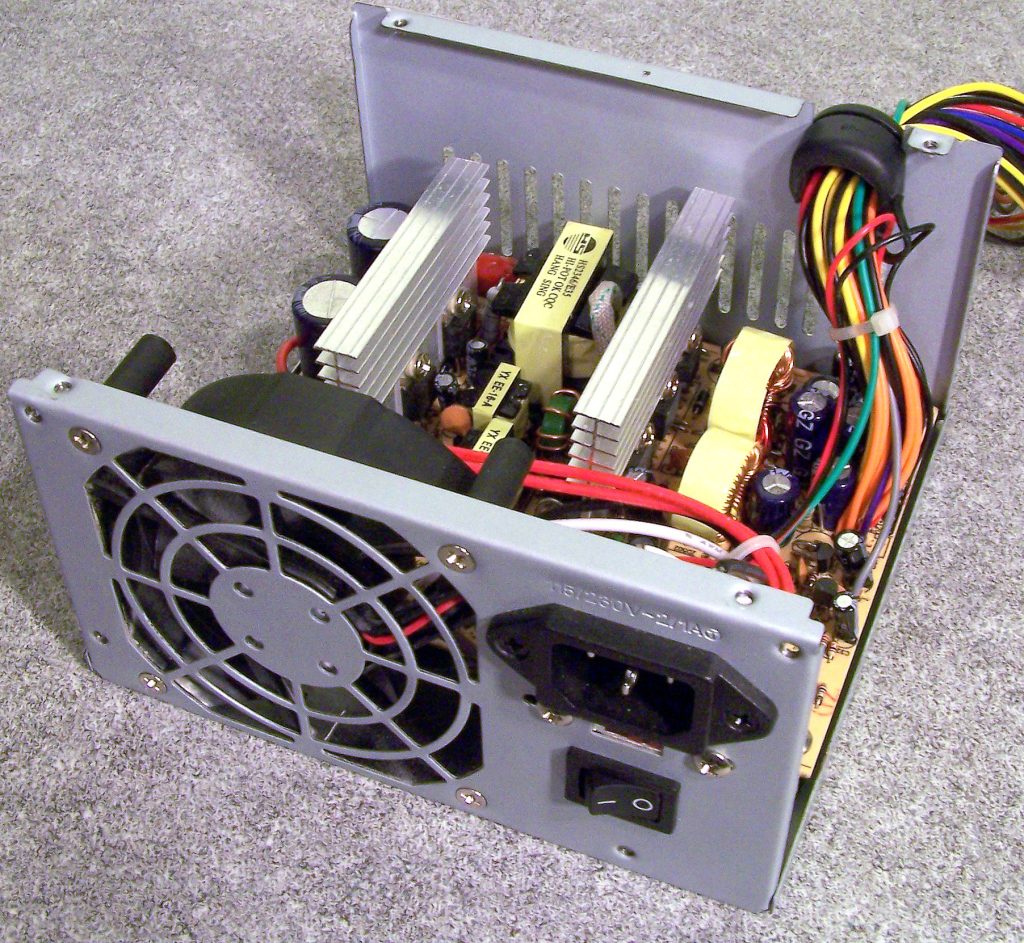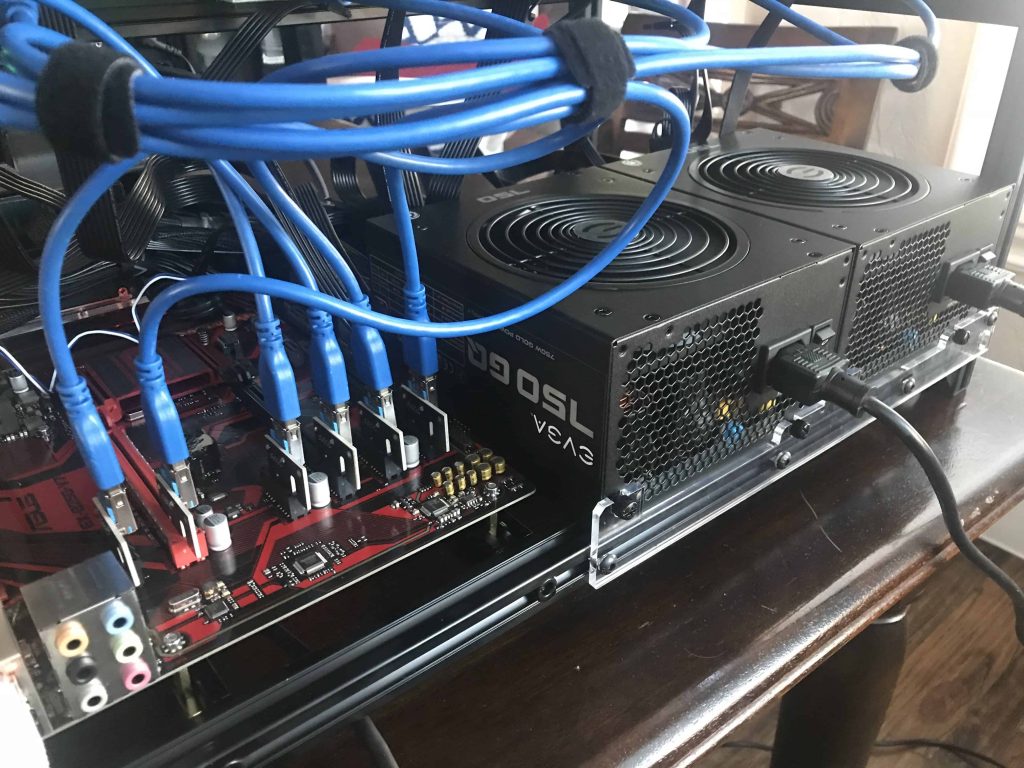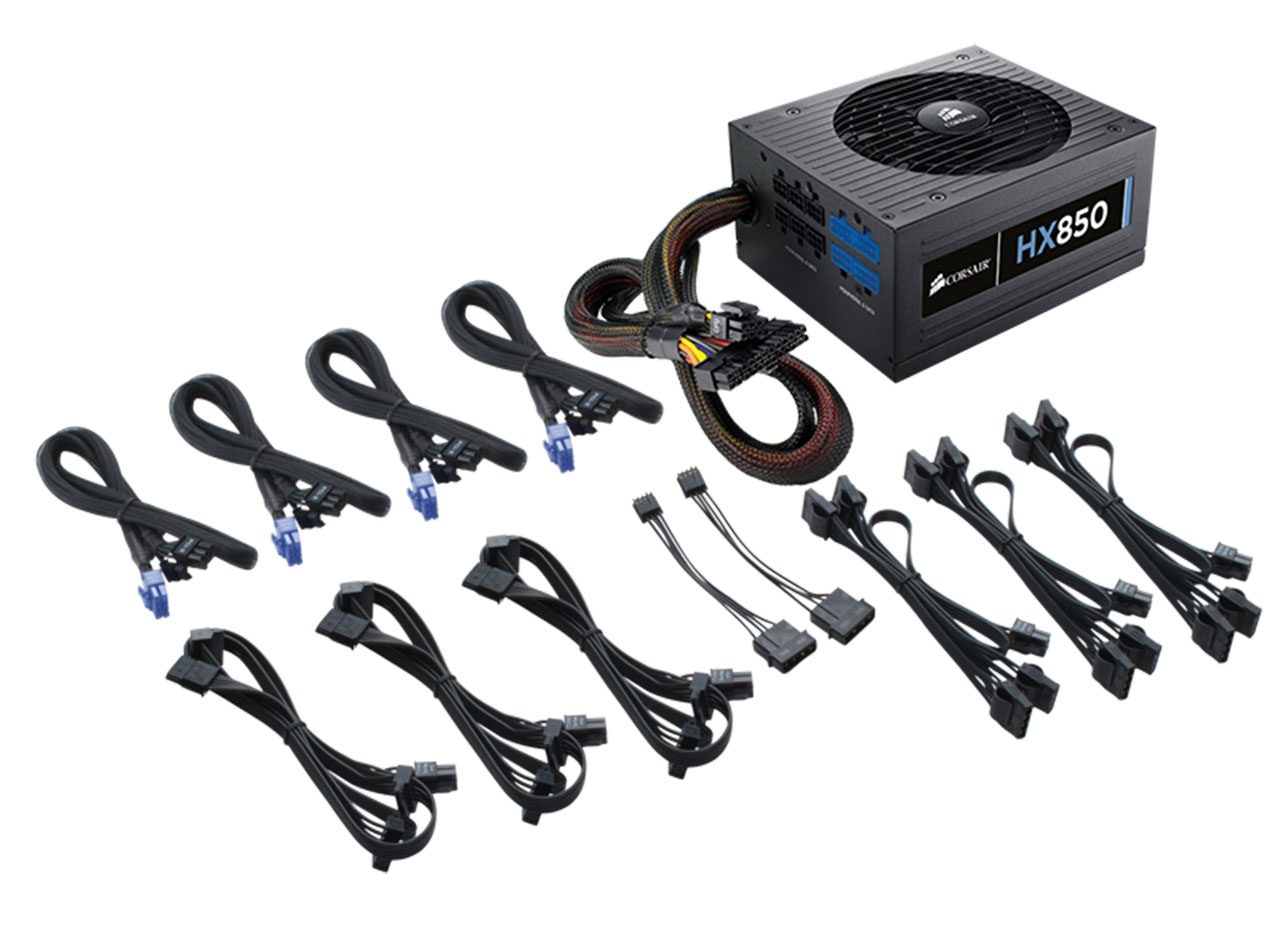Navigating the world of computer components can sometimes feel like exploring uncharted territory. When it comes to your power supply unit (PSU), you might wonder if you can switch out the power cable for a different one.
However, It is generally not advised to use a different power cable for your PSU (Power Supply Unit). They are created to adhere to the norms and specifications of the particular PSU they are meant for. It is possible for electrical problems, component damage, or even a safety danger to result from using a different cable that does not adhere to the necessary voltage, current, or other technical requirements.
Here you can learn more about a variety of PSU-related topics
What is PSU?
A Power Supply Unit, commonly referred to as a PSU, serves a critical role by furnishing power to your computer’s essential components. It plays a pivotal role in converting Alternating Current (AC) from wall outlets into the Direct Current (DC) that your computer requires for operation.
In essence, a PSU is a foundational component that ensures the proper functioning of every electrical element within your PC. Given its vital function, it’s imperative to approach PSU selection with due diligence. Neglecting the significance of a quality PSU could potentially result in damaging your computer components due to inadequate power supply.
In other words, understanding the role of a PSU and investing wisely in its selection is paramount for safeguarding the health and longevity of your computer system.
What could happen if you use a different power cable with your PSU, considering various factors?

Voltage and Current Compatibility: Power cables are engineered for specific voltage and current levels. If you use an incompatible cable, there’s a risk of overloading, overheating, or even melting the cable. As a result damage to your PSU, and other components.
Connector Types: PSUs and devices come with different connectors for secure connections. Moreover, Unreliable connections brought on by power fluctuations that could harm your devices can be a consequence of a misaligned cable connector.
Safety Certifications: Power cables adhere to safety standards for electrical safety. Uncertified wires may jeopardize the security of your setup, placing you vulnerable to shocks and electrical dangers.
Warranty and Support: Non-standard cables can void warranties on your PSU and components. Manufacturers advise using certified replacement parts to ensure proper functioning and maintain warranty coverage.
If you’re in need of a replacement power cable for your PSU:
- Contact the Manufacturer: Get in touch with the PSU maker or an authorized distributor. They can provide a replacement cable tailored to your model.
- Choose Certified Retailers: Choose reliable stores or internet merchants that provide cables made for your PSU version. Look for certified and compatible cables.
- Avoid DIY Approaches: Modifying or creating your own cable solutions is hazardous and can lead to damage or safety risks.
Are PSU cables universal?
Indeed, PSU cables are not universally interchangeable due to various factors. The PSU side of a power supply unit (PSU) lacks standardization, adding to the complexity. This discrepancy is especially pronounced in Non-modular PSU cables, where the cables are permanently affixed to the PSU. As a result, swapping them out isn’t feasible.
In contrast, Modular and Semi-modular PSU cables exhibit a degree of flexibility. Their cables on the PSU end are detachable, allowing for more versatility. However, even within this category, universal compatibility remains elusive.
Considering this, it’s imperative to comprehend the intricacies of PSU cable compatibility. Whether Non-modular or Modular, adhering to the prescribed cables for your PSU model is crucial for optimal functionality and safety.
What are the types of PSUs?
PSUs are categorized into three main types: Non-modular, Semi-modular, and Modular. The distinction lies in the arrangement of cables. Non-modular PSUs feature cables directly attached, Semi-modular PSUs have some fixed cables and the option to add more, while Modular PSUs boast fully detachable cables.
Semi-modular PSUs bridge the gap between Non-modular and Modular variants, offering a blend of both. These PSUs include built-in cables while allowing for additional power cables if necessary.
In contrast, Modular PSUs offer the highest level of customization. Users have the liberty to choose the cables they need, enhancing cable management and aesthetics. However, it’s important to note that the cables supplied with the PSU must be used.
Modular PSUs are particularly suited for those who prioritize cable management, visual appeal, and potential future upgrades. By understanding these distinctions, users can select a PSU type that aligns with their specific needs and preferences.
Are PSU cables interchangeable?
No, PSU cables, while seemingly similar, are not universally interchangeable due to inherent variations. The PSU side of these cables lacks a standardized design, contributing to this distinction. This is particularly evident with Non-modular PSU cables, where the cables are permanently affixed and thus not interchangeable.
On the contrary, Modular and Semi-modular PSU cables offer a level of flexibility, as their cables on the PSU end can be detached. Nonetheless, even within this category, universal interchangeability remains elusive.
Therefore, it’s imperative to grasp the nuances of PSU cable compatibility. Whether dealing with Non-modular or Modular PSUs, adhering to the prescribed cables for your specific PSU model is imperative for optimal functionality and safety.
Can you use the old PSU cables with the new PSU?

No, using old power supply unit (PSU) cables with a new PSU is not recommended due to the lack of standardization across manufacturers and models. While connectors may appear similar, variations in pin configurations, voltage delivery, and wiring specifications can cause compatibility issues and potential damage to components.
In addition, Different PSUs have distinct specifications that may not align with older cables. This mismatch could lead to power imbalances, electrical shorts, and other risks, jeopardizing components like the motherboard, graphics card, and storage devices.
Lastly, to ensure safety and compatibility, it’s essential to utilize the cables provided with your new PSU. If cable replacement is necessary, opt for those designed for your PSU model from reputable sources, ensuring a secure and reliable connection.
Can I replace my PSU cable?
Yes, The option to replace your power supply cable is contingent upon sourcing it from the same manufacturer as your original PSU. However, it’s important to note that the expense of acquiring a cable set can be comparable, or in some cases even higher, than purchasing an entirely new power supply unit.
Alternatively, customized cable solutions are available from specialized online outlets such as CableModand others. These platforms allow you to select cables tailored to your specific PSU brand, model, motherboard, and graphics card.
Nevertheless, this customization can come at a substantial cost, varying based on the type of cables required, including ATX, PCI-E, SATA, and more. The greater your cable needs, the higher the associated expense. In fact, the expenditure could potentially rival that of acquiring a new PSU altogether.
Moreover, it’s worth considering that opting for a new power supply unit might be a wiser investment. The intricacies involved in cable replacement carry the risk of errors that could potentially damage your computer components. In matters of your computer’s integrity, prioritizing caution is unquestionably preferable.
Where to Buy PSU Cables?
In the quest to procure PSU cables, your prime destination frequently rests within the confines of the manufacturer’s official store, particularly if it mirrors the source of your original PSU acquisition. Moreover, online platforms such as Cable-mod and icemodz.
Conclusion
To wrap things up, the use of a different PSU power cable isn’t straightforward. Safety and compatibility are key factors to consider. PSU cables are designed with specific requirements for a reason – to ensure your computer functions safely and effectively.
On the other hand, Before making any changes, check the guidelines from your PSU manufacturer. If you’re unsure, it’s better to be cautious and stick with the original cables.
Thus, Your computer’s well-being is the top priority. By following recommended practices and seeking guidance when needed, you’ll make informed choices that support a reliable and secure computer setup.











